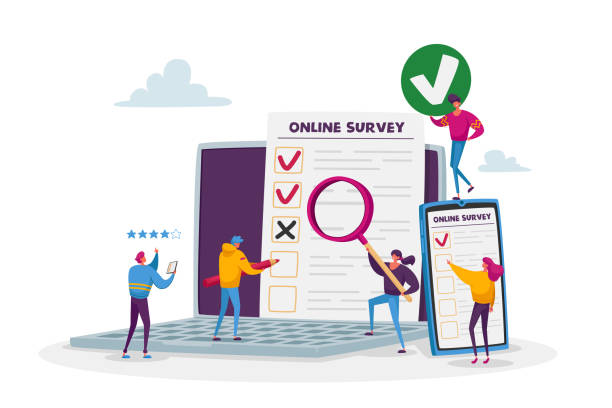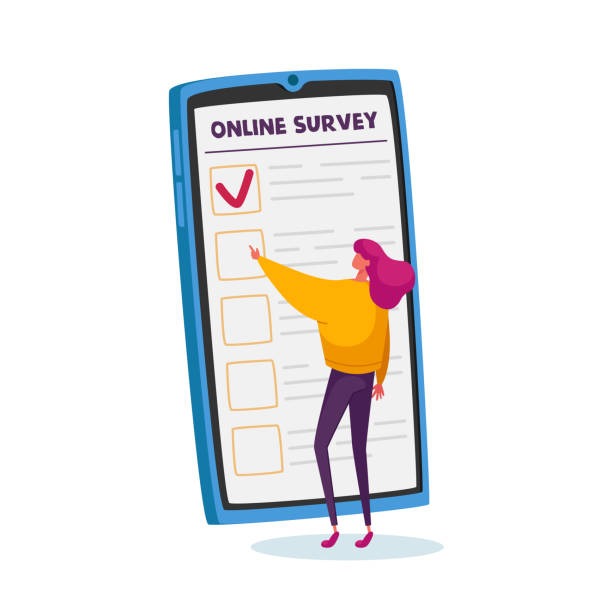Impact and Effectiveness of Online Surveys

Introduction
Picture a device that lets you see what your audience is thinking, collect important feedback and quickly enhance your business or service. This is the power of online survey. This comprehensive guide will shed light on every aspect of online surveys you’ve ever wondered about and perhaps introduce you to facets you hadn’t considered.
The Power of Online Surveys
Historical Context
Online surveys have been around since the early days of the internet, and they’re not just a new thing. Back then, businesses realized the need to understand their online audience, leading to the birth of the basic online questionnaire. Over time as the internet evolved, so did online surveys- they became more detailed, extensive and intricate.
Modern-Day Relevance
Presently, the internet is a massive thing, and online surveys have become extremely important. Whether its a big company wanting to know what its customers think or a student doing research for their thesis, online surveys are the way to gather data quickly and from a lot of people.
Crafting the Perfect Online Survey
Identifying the Goal
The first step in crafting an impeccable online survey is identifying its purpose. Is it to gather feedback on a product, understand market trends, or maybe evaluate employee satisfaction? Once the goal is crystal clear, the subsequent steps become a cakewalk.
Question Types
Using various types of questions in your survey, like MCQs and rating scales, as well as open-ended questions, can have a big impact on how good and useful the information you gather is. It’s vital to mix and match, ensuring you gather both quantitative and qualitative data.
Avoiding Bias
One cardinal rule of survey-making: steer clear of bias. Avoid leading questions, ensure neutral phrasing, and double-check to ensure there’s no ambiguity.
Benefits of Using Online Surveys
Business Advantages
Online surveys are a boon for businesses. They offer insights into customer preferences, product feedback, and even potential areas of expansion. Imagine having an immense amount of knowledge readily available as the click of a button!
Academic and Research Utility
For academic researchers, online surveys break geographical boundaries, enabling data collection from diverse groups and demographics. This global outreach ensures a broader perspective and richer data.
Challenges in Online Surveying
Data Authenticity
Although online surveys have many benefit, they also have their challenges. One primary concern is the authenticity of responses. If proper controls are not in place, there is a chance of having incorrect or deceptive information.
Technical Hiccups
The digital world has its share of issues. Technical issues, software crashes, or even internet downtime can pose challenges to smooth survey administration.
Best Practices for Online Surveys
Design Considerations
A good survey isn’t only concerned with the questions; it also involves its visual appeal. Ensure your survey is visually appealing, mobile-optimized, and user-friendly to encourage maximum participation.
Response Rate Improvement
Curious about boosting the number of people who respond to your survey? Incentives, concise surveys, and timely reminders might just do the trick!
The Future of Online Surveys
AI Integration
As AI becomes more prevalent, it wont be long before it plays a bigger role in online surveys. This means it will provide predictive analysis, automated responses and more features.
Mobile Optimization
As more people use mobile phones, its crucial for online surveys to work well on phones and tablets. Expect more touch-friendly, mobile-optimized survey designs in the future.
Comparing Online and Offline Surveys
Speed and Efficiency
While traditional surveys have their charm, online surveys win hands down when it comes to speed and efficiency. Instantaneous data collection and analysis, anyone?
Cost Implications
Online surveys are both efficient and economical. No printing, no distribution costs – it’s a win-win!
Online Survey Platforms
Popular Choices
Services like SurveyMonkey, Google Forms, and Typeform are well-known by many for conducting surveys on the internet. Each platform offers unique features catering to different needs.
Platform Security
With rising cybersecurity threats, platform security is paramount. Always ensure the chosen platform adheres to top-notch security protocols.
How to Analyze Online Survey Results
Tools and Techniques
Survey data analysis offers a wide range of methods, from basic pie charts to intricate regression analysis. Tools like SPSS and Tableau can elevate your analysis game.
Interpreting Findings
Numbers and graphs tell a story, but interpreting that story correctly is the key. Look for patterns, anomalies, and insights that can inform decisions.
Privacy Concerns in Online Surveys
GDPR and Data Protection
In this era of data leaks, following GDPR rules and having strong safety measures isnt a choice, its a requirement.
Anonymity and Confidentiality
Respect your respondent’s privacy. Ensure anonymity, and use the data responsibly.
Online Survey Case Studies
Success Stories
From Airbnb’s early feedback surveys that transformed their product to non-profits using surveys to drive impactful social change, success stories abound.
Lessons from Failures
Not every survey hits the mark. Some fall flat, but they offer crucial lessons on what not to do, ensuring better surveys in the future.

Frequently Asked Questions
- How much does it cost to conduct an online survey?
The cost varies. While platforms like Google Forms are free, others may charge based on the number of respondents, questions, or the level of analysis required.
- How long should my online survey be?
Keep it concise! Ideally, an online survey should take no more than 5-10 minutes to complete. Longer surveys risk lower completion rates.
- Are online surveys reliable?
Yes, if designed and administered correctly, online surveys can offer highly reliable and accurate data.
- How can I increase my survey response rate?
Offering incentives, personalizing your survey invitations, and ensuring mobile optimization can significantly boost response rates.
- What about privacy concerns in online surveys?
Most reputable online survey platforms ensure data encryption, GDPR compliance, and provide options for anonymous responses to address privacy concerns.
- Which is better: online or offline surveys?
Both methods have their pros and cons. While online surveys offer speed and a broader reach, offline surveys can offer richer, in-depth qualitative data.
Conclusion
Online surveys are valuable tools in todays digital era. They are versatile, effective, and can reach a wide audience, making them essential for businesses, researchers and institutions. As technology advances, its exciting to think about how online surveys will develop, providing more advanced ways to collect and analyze data.
External Links/ Sources:
